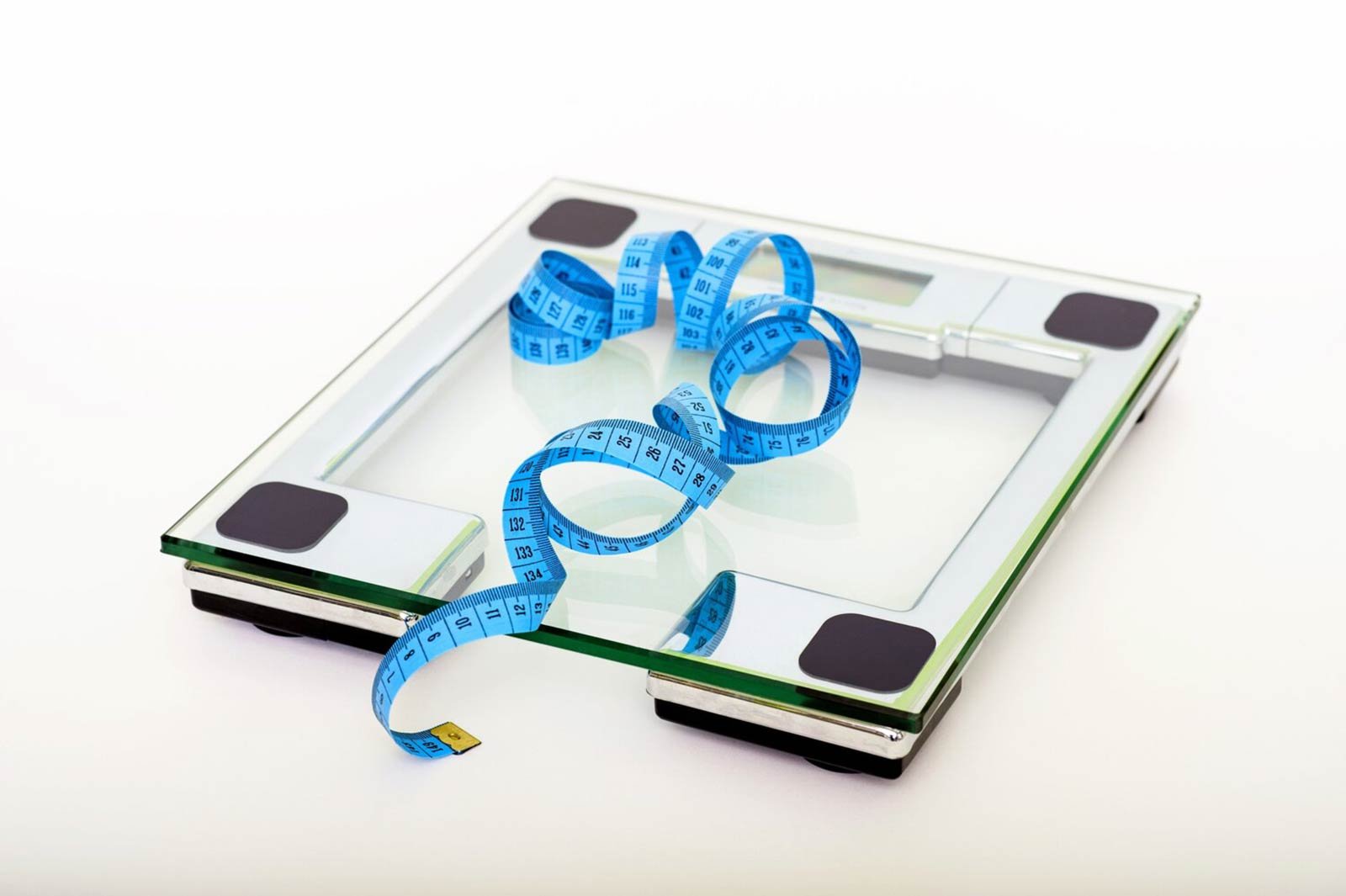The Best Mental Strategies For Weight Loss
I wish I could tell you that picturing yourself skinnier will help the weight magically fall off, or that you could somehow think your way to being thinner. You can’t.
As a child, after I first saw Star Wars, I used all of my mental capacity to attempt to use the force to turn off the lights in my room. No matter how hard I focused on the light switch, the lights stayed on.
As an adult working in the health and wellness space, I learned a lot about how your mental state can affect the outcomes of a weight loss journey. Confident people succeed more quickly in their weight loss journeys, and depressed people struggle. Your mindset has a huge impact on how you interact with the world and even though you can’t think yourself thin, you can adopt a few mental strategies that will help with weight loss:
1. You are responsible for everything that happens in your life
You are the hero in your journey, and everything that happens to you is a result of your actions. You are not a victim. So don’t act like one.
You cannot pawn your health off on others, claiming that you are unhealthy because of external influences in your life. Your job is “too stressful,” you are “surrounded by temptation,” or “it just isn’t our culture” are excuses you’ve been telling yourself to justify your behavior.
Obesity is not a disease, because your actions dictate whether or not you suffer from it. Becoming obese is not something that happens overnight; it is a product of bad habits repeated. Nobody has ever gotten fat from eating one pizza. And no one has ever gotten skinny from one workout. Consistency is key to a health journey, and you are responsible for keeping it up. It’s all on you.
It is true that some people are going to have to work much harder to get results than others, but that’s not always a bad thing. The genetically gifted tend to fall victim to a vicious cycle of losing weight, followed by a complete disregard for their health, which inevitably results in injury. It’s the type of person who believes that at age forty they can go out and run a marathon with little or no preparation because “they’ve done it before.”
Your body type was given to you by the luck of the draw, and, luckily, body type is more a result of consistent action than anything else. Are you naturally skinny? It might take a little longer to gain muscle. Would you consider yourself heavy set or thick (not just overweight)? It’s likely you are going to respond best to weightlifting and a lower-carb diet. Are you naturally muscular? Lucky you; everything will be easier. As you age, your body type will change, and, if you don’t focus on your health, you may not like the changes that occur.
It doesn’t matter where you start as long as you believe that you can achieve your goals.
2. Love your body and be patient; everything takes time
You won’t succeed overnight.
Everything starts with your perception and your expectations of yourself. To have a healthy view of your health journey, you’ve got to love yourself and be patient. Be grateful; you’ve got it pretty good. And you are already making progress on your health journey by reading this blog.
If Tony Robbins is right and “progress equals happiness,” every little step in the right direction should feel like hugging puppies while riding a unicorn.
If it doesn’t, you’ll have to just be patient like the rest of us. Forgoing a cheeseburger for a salad isn’t necessarily fun and won’t have a major impact on your health if you do it only one time. You’ll have to forgo that cheeseburger about twenty times before you notice any changes in body composition. The same is true for gaining muscle—you won’t look shredded after one workout; it takes a year to gain ten pounds of muscle.
That’s what makes patience and persistence the most effective tools in getting stronger and leaner. Real change takes time, and it cannot be rushed.
3. Remember, nobody cares about how you look
Everyone is way too self-centered to care about how you look. A lot of people feel self-conscious when going to the gym or the beach because they feel like everyone is looking at them. They aren’t.
People are far too busy looking in the mirror to even think twice about someone else. In fact, in the gym, people’s concerns are generally as follows: first, by far, themselves; second, unquestionably, their phone; and third, reluctantly, their surroundings. If you are taking steps to improve yourself, everyone there will either help you succeed or totally ignore your existence.
If you still don’t feel confident in the gym, hire a personal trainer. They will teach you how to properly move your body. Good trainers are a great investment, not only because they are experts in how to move, but because they also hold you accountable. You aren’t going to miss a workout if the workout costs $100. If that seems steep, well, that’s because it is.
However, there are many other, lower-budget options if you still would like a personal trainer. Do a half-hour session once a week with a friend. That should run you less than $30 per person. Take a group class like Zumba; nobody looks cool doing Zumba, but it is pretty fun hitting stuff with drumsticks.
No matter what you do, you won’t look sillier than the guy who films workout videos in the gym for a blog. If you don’t believe me, check out the workout library.
Also if you do have someone commenting on your looks, see #4.
4. Spend time with empowering people, and distance yourself from draining ones
You are the lowest common denominator of the people you spend the most time with.
It makes sense; people tend to adopt the habits of their closest friends. If all your friends eat pizza and ice cream on Friday nights, there is a good chance you do, too. If all your friends like playing sports, there is a good chance you also like sports. Our friends are people we can do fun activities with or spend time with enjoyably.
Making big lifestyle changes is hard, because you need to change your habits. Your habits might be activities you do with a group, like happy-hour drinks or ice-cream socials, and while those things are great in moderation, they won’t help you on your health journey. You are currently in the process of devising a master plan for your health-and-wellness journey. It will be incredibly beneficial if you have some supportive friends to help you along the way. Even criminals need accomplices. Surround yourself with supportive, like-minded individuals.
Thanks to modern technology, this has never been easier. Type a healthy activity you’d like to try into the Internet machine, and schedule a time to do it. Seriously, put it in your schedule so you actually do it. Show up fifteen minutes early, and schmooze the regulars. If you enjoy yourself and the people, return to the same place at the same time next week. Repeat. You’ll have a new crew in no time; healthy activities generally have a welcoming community filled with like-minded individuals, especially at smaller gyms.
If you are looking for a unique community, find activities that interest you online at places like meetup.com or Facebook groups. If there is an activity that interests you, chances are there is already a community built around said activity in your area. Depending on the season, there are also intramural sports. Intramural sports are great because you are held accountable to your teammates and your wallet.
Intramural sports aren’t cheap, and they generally have limits on the size of the team, so once you sign up, you are committed socially and financially.
Not everyone wants to go out and make new friends for their health journey because it seems like a daunting task. However, making new friends with similar interests is actually easier than convincing your current friends to change their ways.
Replace your old habits with better ones. Instead of Friday-night beers, how about Friday-night vodka and water? Instead of ice cream, how about froyo? If your friend is unwilling to compromise in this regard, you may need to see this person less. It’s a bad sign if you are trying to better yourself and your “friend” refuses to be accommodating. Not all people are supportive. Do you know the kind of people who complain all the time and drain the energy from a room? People who try to tempt you into drinking when you say you are driving or those rooting for your failure? You don’t need to be around those types of people. You need the kind of people who leave you feeling energized; when you suggest a fun activity, they are all in before you even describe the endeavor.
Your social circle is a sacred thing; guard it closely. Your social circle influences the activities you do, your political beliefs, and your health. Do not admit people lightly.
5. Don’t weigh yourself every day
Scales are not for everyone. There are plenty of reasons why. Some people become obsessive, some people can’t handle the number going up, and some people simply don’t care about that number.
A scale can be an effective tool for monitoring progress in a weight-loss journey. I use it with a lot of clients whose goal is weight loss. However, in an effort to prevent compulsive scale usage, I recommend weighing yourself once a week under the exact same conditions. This is a much better indicator of progress than daily weigh-ins because the change is likely less circumstantial.
If you don’t take that approach, the scale can lie to you. Often your weight goes up, even though you are sticking to your diet and exercise routine. What gives?
Water weight is probably the most influential factor. If you ate a lot of salty foods yesterday, it is possible that you are bloated. Your body simply retained more water than usual.
Additionally, it is possible that last night you ate a bit later than usual, and you haven’t given your body sufficient time to digest and excrete the waste. Poop can be surprisingly heavy.
Weigh yourself once a week, and remember that weighing less might not be the best strategy for looking better. Muscle weighs more than fat, so if you choose to use the scale as your main measurement of success, take pictures to track your progress alongside the scale. You may find you like how you look at 160 pounds more than 150 pounds.
There is nothing wrong with wanting to look better. Looking better or “more toned” is the primary reason people give for starting their health journey. “Better” is not quantifiable, however. How much weight you can lift, how much you weigh, or even the size of your biceps are more measurable goals that you can easily track.
6. Keep a journal or notes on your phone
Are you going to remember these six things a week from today?
Let’s be honest—there is only a small chance that you’ll remember your goals, how much you eat in a day, your workout, along with all the other responsibilities you have in life. If you want to guarantee your success, you need some tracking system.
There are apps for tracking your food intake, journals for tracking your workouts, and spreadsheets for everything in between. It is easier to make progress when you know how many calories you eat in a day, how much weight you used in every set of your workout, and how much sleep you are getting. These things are what makes for a healthy individual, and while you don’t need to track everything you do for the rest of your life, writing things down is a helpful tool for making changes.
If you enjoyed this article, you might also like:
How Can I Improve My Concentration And Focus At Work?
How To Shut Off Your Brain And Fall Asleep Faster
Work From Home Mental Health Tips














